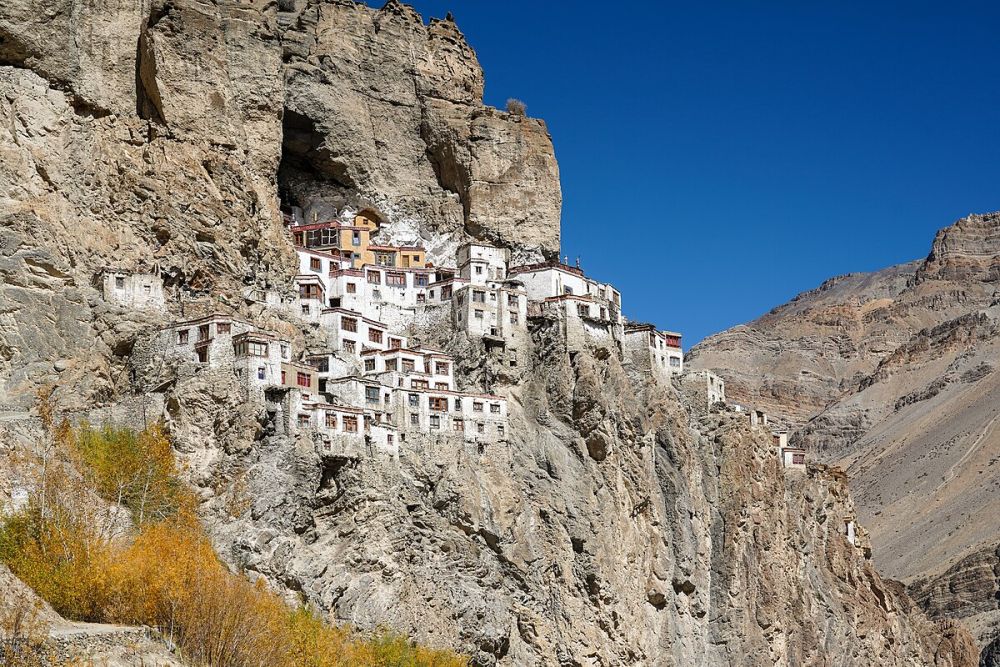

Nestled in the remote and majestic landscapes of Zanskar in Ladakh, the Phugtal Monastery is one of the most isolated monasteries in the world. Also known as Phuktal Gompa, this Buddhist monastery is a breathtaking destination for spiritual seekers and adventure tourists alike.
The origins of Phugtal Monastery date back to the early 12th century. It was established by Gangsem Sherap Sampo, a disciple of Gelug founder Tsongkhapa. The monastery is built like a honeycomb, clinging to a sheer cliff above the Tsarap River. Its name, Phugtal, is derived from 'Phug' meaning cave and 'Tal' meaning at leisure in the local language, symbolizing the monastery's tranquil and seclusive nature.
For centuries, the Phugtal Monastery has been a hub for scholars and spiritual teachers. It has maintained its traditional educational system and continues to be a repository of Buddhist teachings, texts, and murals.
Initially, the reach to Phugtal was limited to the most intrepid travelers due to its isolated location. However, as global interest in Buddhist culture increased and off-the-beaten-path trekking became more popular, the monastery gradually started witnessing a slow but steady rise in visitors.
In recent decades, efforts have been made to promote Zanskar and its monasteries as extraordinary travel destinations. The tourism in this region, however, remains seasonally restricted due to harsh winters and the fact that the region is only accessible by road a few months each year.
With the construction of new roads and increasing popularity of Ladakh as a tourist destination, more visitors have been able to make the arduous trek to experience the serenity and stunning beauty of Phugtal Monastery.
Eco-tourism and sustainable travel practices are becoming increasingly important in regions like Ladakh. Visitors are encouraged to minimize their environmental impact and support local communities by staying in homestays and participating in cultural immersion experiences.
Another trend is the rise of spiritual and wellness tourism, with travelers seeking out destinations like Phugtal for meditation, reflection, and a deeper connection with nature and spirituality.
It's important to note that while tourism provides economic benefits to the local community, it can also pose challenges in terms of preserving the natural environment and cultural heritage. Responsible tourism practices are critical for the sustainable development of destinations such as Phugtal Monastery.
For those who seek a journey that takes them back in time, to the very heart of Buddhist tradition and through some of the most awe-inspiring landscapes on earth, the Phugtal Monastery in Zanskar, Ladakh, awaits.